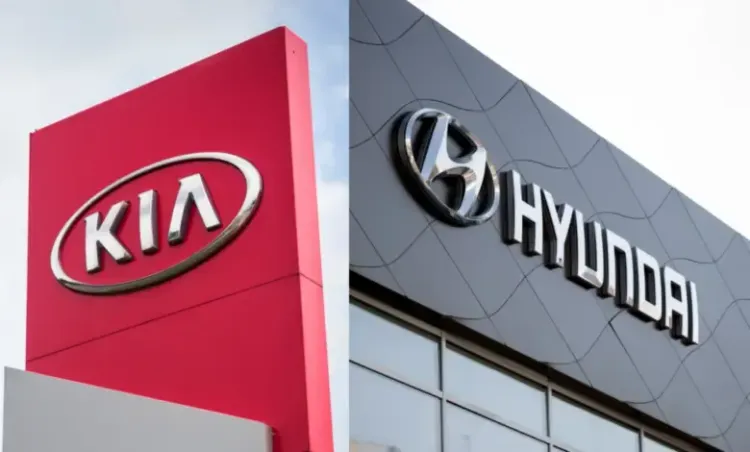South Korean Automobile Exports Increase in March Despite U.S. Shipment Decline

Synopsis
Key Takeaways
- Exports rose by 1.2% year-over-year in March.
- U.S. shipments fell by 10.8% to $2.78 billion.
- Asian exports surged by 61.8%.
- Domestic sales increased by 2.4%.
- Government plans 2 trillion won support for the industry.
Seoul, April 15 (NationPress) In March, South Korea's automobile exports saw a slight increase compared to the same month last year, fueled by growing demand from Asian countries, while shipments to the United States experienced a significant reduction ahead of the implementation of US tariffs on auto imports, according to data released on Tuesday.
The total value of automobile exports reached US$6.24 billion last month, reflecting a 1.2 percent rise from the previous year, as reported by the Ministry of Trade, Industry and Energy, according to Yonhap news agency.
This marks the second consecutive month of growth and the second-highest export value for March ever recorded. However, in terms of quantity, exports dipped 2.4 percent year-over-year, totaling 240,874 vehicles.
The export value of environmentally friendly cars fell 3.1 percent year-over-year to $2.02 billion in March, while sales volume increased 5.8 percent to 68,760 units.
Of this total, 41,969 were hybrid vehicles, and 20,757 were electric vehicles (EVs), the data indicated.
By region, exports to North America decreased 8.4 percent compared to last year, amounting to $3.27 billion, primarily due to a 10.8 percent drop in shipments to the United States, which totaled $2.78 billion.
In contrast, exports to the European Union fell 3 percent to $780 million.
However, exports to Asian countries surged by 61.8 percent to $660 million, and those to the Middle East increased 21.2 percent to $490 million, as per the data.
Domestically, automobile sales rose 2.4 percent year-over-year to 149,512 units in March, while domestic production increased by 1.5 percent to 370,836 units.
In the first quarter of this year, the overall value of car exports fell by 1.3 percent, and sales volume decreased by 2.2 percent compared to the previous year.
The decline was attributed to fewer working days this year and a high base effect, as exports in the first quarter of 2024 had reached an all-time high, the ministry noted in a statement.
South Korea's automotive sector is preparing for the possible repercussions of the Donald Trump administration's 25 percent tariff on imported cars, which took effect on April 3.
The government plans to swiftly implement support measures for the auto industry and respond flexibly while closely monitoring developments in the industry and the status of tariff negotiations with the U.S., the ministry stated.
In response to the U.S. tariff initiative, the government announced plans to inject 2 trillion won ($1.35 billion) in additional liquidity into the industry, in addition to the previously planned 13 trillion won in policy financing.
It also committed to exploring measures to enhance the domestic automotive market, such as expanding EV subsidies and prolonging tax incentives on new vehicle purchases, while working to diversify export markets.









